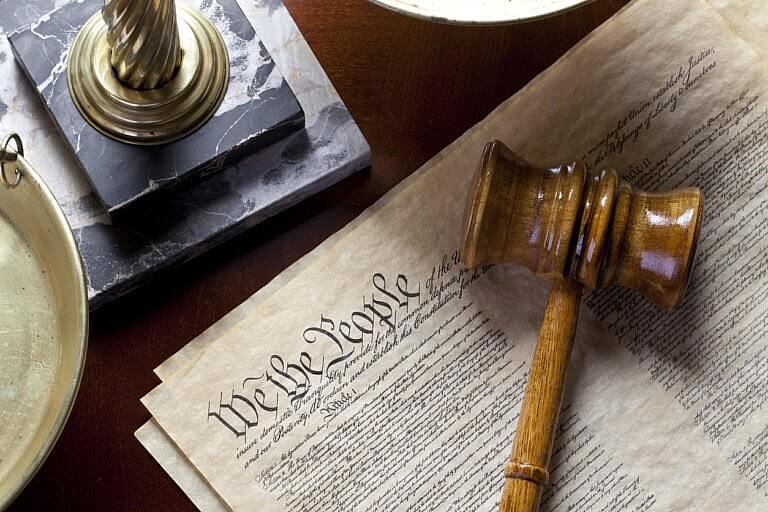While being charged with a crime can be overwhelming, to say the least, it can be important not to lose hope. There may be a variety of criminal defense strategies available that can lead to things like your charges being reduced or even tossed out altogether. One of the most effective strategies, should it be relevant to a particular case, is the defense strategy which uses constitutional violations. You see, all of us have guaranteed protections under the U.S. Constitution. This holds true regardless of whether or not you are being charged with a crime. In fact, it remains true regardless of whether or not you are guilty of a particular crime. When constitutional violations occur, there are consequences that can have significant impacts on your criminal case intended to help rectify the violation.
How to Use a Constitutional Violation in Your Defense
It may surprise you, or it may not, to find that constitutional violations are particularly common when criminal charges and criminal trials are concerned. The relevant violations can occur from the point of arrest, through gathering evidence, and all the way through trial. When effectively pinpointed and asserted, a constitutional violation can lead to critical evidence or a confession being thrown out. Because the burden rests on the prosecution to prove guilt beyond a reasonable doubt, key evidence or a confession being tossed out can often lead to a significant weakening in the prosecution’s case which can, in turn, lead to charges being dropped or reduced. Furthermore, constitutional violations can also be grounds for successfully bringing an appeal.
The Fourth Amendment of the Constitution guards against unlawful search and seizure. Although there are exceptions, in order for law enforcement to conduct a search of a home or a vehicle, a warrant or probable cause to conduct the search is required. Without probable cause, a warrant, or an exception to the warrant requirement, the search will likely be declared unconstitutional. As a result, it is likely that evidence obtained as a result of the illegal search will be deemed inadmissible at trial. Again, having evidence declared inadmissible can have significant impacts on the prosecution’s case. In fact, it can even lead a prosecutor to drop charges or reduce the criminal charge substantially.
The Fifth Amendment is the right a person has against self-incrimination. It is the founding basis for Miranda warnings. Law enforcement is required to read the defendant his or her Miranda rights during the arrest if they intend to ask questions of the defendant. This includes informing the defendant of the right to remain silent and that anything he or she does or says can be held against him or her in court. If a defendant provides evidence or a confession after arrest and in response to interrogation, and law enforcement failed to read Miranda warnings, then all of it can be deemed inadmissible. Again, this can lead to charges being dropped, an acquittal, or a successful basis for filing an appeal.
Criminal Defense Attorneys
Have you been charged with a crime? Do not hesitate to talk to the trusted team at CDH Law. Contact us today.



